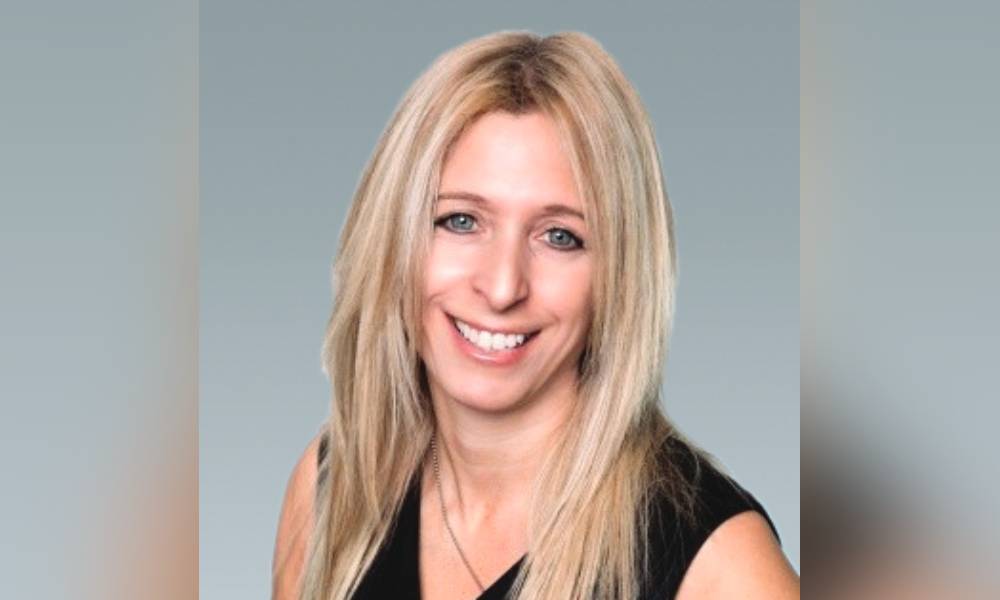Canadians have so far saved more than $212 billion in the pandemic, so help them rethink where that can now go

If your clients are saying they’re ready to “revenge spend” what they saved in the pandemic, you’ve got an education opportunity.
Not only can you talk to them about revising their budgets for what they were spending in the pandemic, you can also talk to them about how they’re aligning their retail purchase with their values – much as you would if you were discussing aligning their ESG portfolio with their values.
That’s one of the conclusions that Alanna Cantkier, National Director of Retail Leasing for Colliers International’s Real Estate Management Services, told Wealth Professional she came to when she looked at what’s been happening to retail during the pandemic.
She said Borrowell reported that Canadians have saved about $212 billion – roughly $184 billion higher than pre-COVID levels – during the pandemic. While Canadians now are in the mood for some “revenge” and “treat yourself” spending, there are other opportunities here.
“There is definitely a pent-up anger, anxiety, and need for freedom, a kind of I’ll show you mentality that we’re beginning to see,” she said. “But advisors can talk to their clients about cutting back what they actually spent money on during the pandemic to make it tolerable – things like online shopping, subscriptions, takeout food delivery service and meal kits because all of that added up – and what they want to spend their money on going forward.
“It’s absolutely an opportunity to also look at how they put forward their core beliefs in how they spend their money because a number of different brands are shifting for things like environmental reasons. McDonald's just announced that it’s doing away with the plastic toys in Happy Meals because they end up in the landfill. Right? There are cool clothing companies looking at the way they manufacture or dispose of things.
“So, if people want to align the cultural and ethical values of their brands with their own culture and ethical values, for sure: this is a great time for advisors to help their clients start looking at this with what they’ve saved in the pandemic.”
Cantkier noted that while she saved $400 a month on the GO (Toronto-area commuter train, she’s ready for personal services like having her nails done.
“It’s kind of a detox that we’re having right now. We’re shifting those dollars and making sure that, while we’re focused on feeling good and getting back out there to live the life that we’ve missed, we also want to be mindful that we’re putting a little bit aside and taking a good look at how we want to spend our dollars. What’s important to you? That can be different for everyone, but it’s being mindful that while we saved a lot of money, we don’t need to just go back and spend it all at once – and advisors can help their clients by looking at their budgets and then asking their clients how they want to make an impact with what they do spend.”
The impetus for that notion came from the fact that retailers and brands are realigning to respond to customers and their values. Cantkier said some are responding to environmental concerns. Others are moving from being solely online to creating bricks-and-mortar locations where customers who may not be satisfied with an online purchase can return, and exchange, goods rather than just disappear and never shop with them again.
“Customers have the upper hand now,” she said, “and we can determine where to spend our money and what kind of experience we want, not just online, but in the physical means.”
What a store means is also changing because customers now can buy online, pick up in the store, or use curb side pickup. Cantkier noted only 27% of Canadian retailers had an online sales platform before the pandemic, but 58% now have. Retailers are also seeing that they need to elevate their service and brands and offer more experiential shopping to attract customers to return. They’re also increasingly using client data collected from customers’ online shopping experience to better service the same clients in-store as they now know more about their preferences and spending habits.
The retailers who don’t shift don’t make it. Cantkier said those who closed pre-pandemic weren’t responding to how customers were changing.
“They really didn’t shift their behaviours to accommodate the changes in customers,” she said. “So, as a result, they were already becoming obsolete.
Between February 2020 and April 2021, StatsCan also reported that 16,600 retail businesses closed in Canada.
“We can expect to see more appointment-driven shopping, personal shopping services, and specialized one-on-one interactions. These shifts will be born out of our need for safety while also emerging as a by-product of buying more expensive products that require an elevated experience.”
So, she recommended advisors take this opportunity to help their clients shift their spending, not only for this late pandemic phase, but also the future.
“They can invest some of what they’ve saved, and use some for, we’ll call it good revenge spending, on things that promote wellness, mental help, or physical health,” said Cantkier, “but they can also reallocate some of their spending to brands that align with their values, too.”



